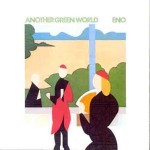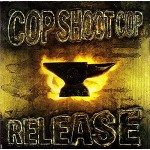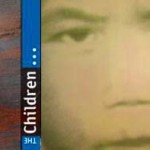Jim Coleman was part of the seminal New York City alt/noise/experimental/industrial rock band Cop Shoot Cop, contributing on sampler, keyboards, and mixing. The band released several albums in the 1990’s, including Ask Questions Later and Release on Interscope Records, the former with the minor alt-radio hit “$10 Bill”. They also were a well-regarded live act, and did shows with Sonic Youth, Iggy Pop, Red Hot Chili Peppers, and many others before breaking up in 1996.
Coleman’s musical journey has continued with scoring of films and TV shows, and recordings released as Phylr. In 2012, under his own name he released the album Trees, an organic, sonically rich set of movements that should appeal to fans of ambient electro-acoustic music.
Coleman answered the following questions by email, with answers received on 1/7/13.
Jeff Moehlis: How were you affected by the recent hurricane?
Jim Coleman: We had an 80 foot tree in our front yard come down, destroying our car, our neighbor’s car, and doing significant damage to their house. Lost power and heat for 2 weeks, and were running around taking care of stranded family members. No one died, and we still have our home, so no big complaints.
I find it remarkable that some right wing conservatives still claim that Global Warming is a myth though. The Northeast of the US has received 2 major storms in the last year (Irene and Sandy). These formerly could have been considered tropical storms, had they occurred in the south. But we have seen the climate change drastically in the past few years. If it’s inconvenient for corporate/business/political/energy concerns, too bad. But it can’t just be wished away.

JM: I’ve been enjoying your album Trees. Can you tell me about the instrumentation on this album?
JC: Trees is a pretty even split between electronic and acoustic. It started mostly in the electronic realm, emerging from sonic manipulations done on my computer. But before it became overly defined, I went out and started recording with Kirstin McCord on cello and Phil Puleo on a variety of instruments. I also played French horn, guitar, melodica and other acoustic instruments. A couple of the tracks benefited from earlier “field” recordings I had done with Dawn McCarthy (vocals) and Ellen Fullman (long stringed instrument). For the last track (Rain), I brought in Bryan Christie on sax, an instrument that I typically abhor but works in this track.
JM: To what extent was the music on this album scored versus improvised?
JC: None of it was scored. The basic recordings were all done as improv, though I definitely had distinct direction and parameters and opinions about what was being played and how. I chose the particular musicians because I value and trust what they do and how they do it. Once I did the basic recordings, I brought it back in to the studio, edited the hell out of it, sometimes manipulated it. Inevitably, the track’s essence continued to emerge through this process.

JM: Your song “Under Current” from this album reminds me of the Brian Eno song “Becalmed” from Another Green World. This makes me wonder, to what extent is Brian Eno an influence on your music?
JC: Eno was indeed a huge influence on me. Early on, I latched on to his ambient work (primarily Music for Airports and Music for Films), which I listened to repeatedly. They kind of became a soundtrack to my life for a period of time, coloring, framing and defining my daily life. This was before I really started making my own music, though I was highly creative. Most of my creativity went into this evolving series of drawings of vast interior psychological landscapes. I had also just started working in film, doing short experimental work in Super 8. In an case, Eno’s music sank in and has remained a part of my DNA.
JM: Who are some of your other musical influences?
JC: Other musical influences: Iggy Pop (Stooges era), Steve Reich, Gang of Four, Wire, Joy Division, Biosphere, The Beatles, Public Enemy, Gorecki
JM: How would you say that the music on your new album relates to the music of Cop Shoot Cop?

Well, first off the album Trees is quite different than any of the Cop Shoot Cop albums. Perhaps I have matured and mellowed with age. But even looking at the Cop albums, Release sounded quite different than Headkick Facsimile. The hope is that as a creative person, I am continually evolving, and not settling into comfortable fixed ways of approaching creative work and the world around me. With Trees, I was very conscious of trying to make music in a way that I had not done before. But I think that I was breaking the mold of how I made music as Phylr rather than how I made music within Cop Shoot Cop.
That all being said, there are ties and commonalities to how I approach music and more specifically, sound, whether I am doing something within Cop or producing something as Phylr or Jim Coleman. The biggest commonality for me is how I play with sound. Sometimes I feel like a sonic potter, in that any sound is not just what it is. It can be very malleable. And I have always been drawn to this manipulation, to taking something that is known and commonplace, and turning it on it’s head, or side, or back, so it becomes unknown and mysterious.
JM: Are there any plans to reissue the music of Cop Shoot Cop, which is currently mostly out of print?

JM: There is occasional talk about it, but nothing ever seems to happen. It is a shame that all the Cop records are not easy to find. I’ve thought of doing a kickstarter kind of thing, to raise some basic funds to realize this. But I know it would become a life commitment for a concentrated period of time, and I always seem to be more interested in putting my energy in moving forward rather than revisiting the past. I’m not saying this in any kind of noble or righteous way. At times, this mindset can be a liability, as there is much to be learned and even enjoyed from looking at history.
JM: What are some memories of the Cop Shoot Cop tours?
JC:
– Playing frisbee with a truck hubcap on the entrance grounds to a mental institution, wearing boxer shorts on our heads while waiting for some underaged girl to pick up meds from her doctor so she could jump in our van and run away from her family for a while. She came with us, but unfortunately did not get her meds.
– Seeing and hearing a 4 hour set by Neil Young at Roskilde Festival
– Getting stark naked on stage in a small club somewhere in the south of France, just to keep the entertainment going. The club was so overly hot and humid that all my samplers and electronics were malfunctioning. After trying repeatedly to fix stuff, I finally gave up, got naked and went in to the audience.
– In the early days, we could never finish shows, as there was always some outbreak, some disturbance either within the audience, within the band, or between the band and the audience. This was upsetting at the time, yet once it settled down and we were able to do more proper shows, I missed this.
– There are countless stories from touring. I’ve thought at times of writing a book or screenplay, but it’s still on my to do list.
JM: How do you approach composing for TV and movies?
JC: The approach can vary greatly depending on the project. I’ve done a good amount of true crime television. In the middle of a season, the production and post production schedules get extremely tight. At times, I’ve ended up just creating a library of music cues, as the ability to score to picture has gone out the window. I’ll just keep on delivering cues to the editing team somewhat blindly. Of course, by this time, I have a pretty good idea of what is wanted, what kind of cues will work.
In other cases, it’s all scored to picture, and there may be seemingly endless revisions as the cut changes. It used to be that the real music composing would start once the picture was locked. But this seems a luxury of the past (or perhaps a luxury of higher budgets). I actually prefer to be involved earlier on in a project, as it allows more room for my ideas and voice, even if it may mean more time and a more circuitous work flow.
No matter what the project is, it all starts with a meeting with the director, producers and editor. We make sure that the fit is right, that I’m right for the project and that the project is right for me. After that, I’ll typically start drafting some of the major themes and give everyone something to react to. It seems much easier for people to hear something and react to it than for them to describe what they want from nothing, which I understand.
JM: What advice would you give to an aspiring musician?
JC: Don’t do it for the money. Being a musician, or just a creative person, can be a blessing and a curse. I’ve made a decent living at it from time to time in my life. Sometimes on my own terms and sometimes on other’s terms. Doing music as a work for hire can potentially twist this thing that you love. But it can also be truly rewarding, even as a craft or skill.
I’ve always wanted to make music and mess with sound, even as a little kid. At times I have wished that I could just be content being a working stiff and watching television shows at night. But I can’t. I love making music. So I guess I’d say that you’ve got to do it for the love of it, either it’s something inside you or it won’t work.
Something I’ve never been that good at is the art of self promotion and creating a hype. I was always very idealistic, thinking that if I made good interesting music, it would organically find it’s way out in to the world to eagerly waiting ears. Not the case. Even if it goes against your grain, you have to push yourself out in to the world, be social. Also, it really helps to have a team on your side. For the release of Trees, I hired publicists to help bring it out in to the world.
JM: What are your plans, musical or otherwise, for the near future?
JC: I’m always working on a bunch of projects. I’m currently finishing up doing some music for EXPOSED, a documentary film by Beth B about extreme performance art which borders on Burlesque currently coming out of NYC.

I’m also looking at re-mixing and releasing an album (which has actually been released but never really hit the radar) of a project I have called “The Children…”. This might see the light of day this summer, and we would put some resources behind it.
And I’m working on a loose follow up to Trees. Some of this is based on recordings of people’s near death experiences, and some gets in to more rhythmic terrain.
JM: Do you want to set the record straight on anything regarding your career?
JC: I don’t think anything has been drastically misconstrued. In Cop Shoot Cop, we used to make up improbable dramatic stories about things that never happened, just to see if they would take root in the music press. And they usually did. But oddly enough, the things that actually DID happen were stranger than fiction. I love that.
JM: Where are you responding from?
JC: I’m not 100% clear on the intention of this question. Perhaps you are looking for the root of my work, what inspires me, what place I create from? Often in “real life”, or my day to day reality, I feel emotionally guarded. I think I learned as a child if I just didn’t feel then I wouldn’t get hurt. I don’t advise this. Perhaps it worked for some small period of time as a child and a teenager, but now as an adult, I’m still trying to live in an emotionally open and honest way. Music though has always given me a straight line to my emotional self. I can hear all my feelings in my music: anger, joy, depression, excitement, the list can go on and on. So I think I am working from a place of feeling and of emotion, from the heart rather than the head.


Discussion
No comments for “Interview: Jim Coleman”